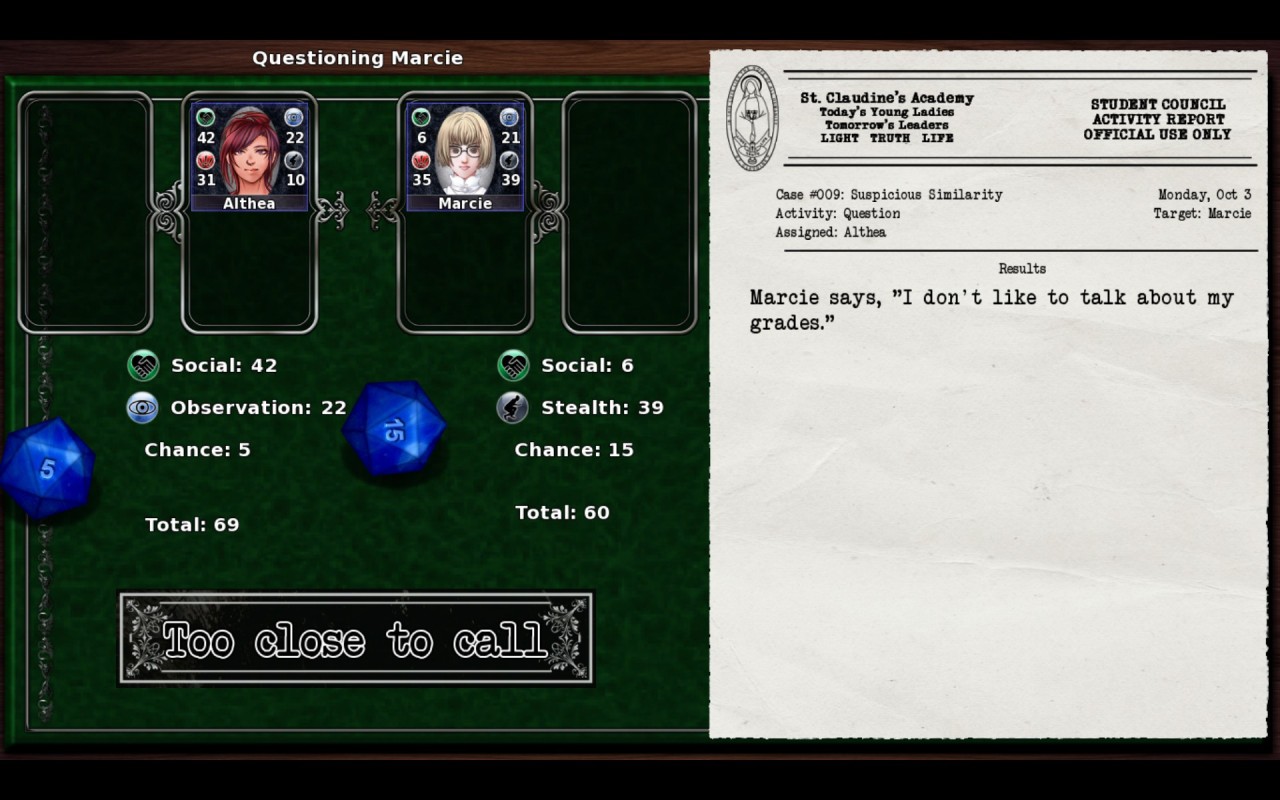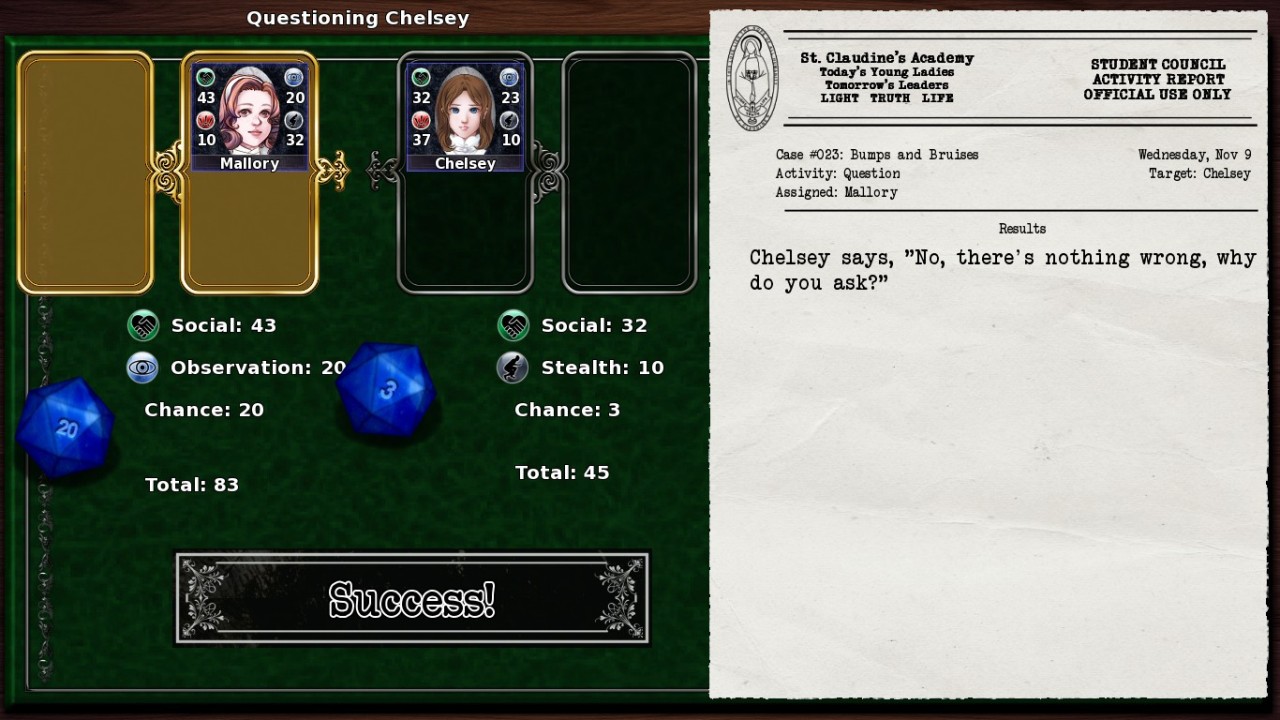

Black Closet
Mystery stories are difficult to make interactive. There’s no shortage of attempts: one of Infocom’s early games was a whodunnit titled Deadline, for example. But despite the attraction of marrying the puzzle-solving of detective work with the puzzle solving of gameplay, most attempts have been ill-fitting, with the occasional success.
I chalk Black Closet up as one of the successes, partially because it knows what it is and doesn’t try to be a mystery novel. It’s a visual novel, by the same designer as Long Live the Queen. But where Long Live The Queen is a single elaborate puzzlebox, Black Closet is a puzzle machine.
That’s because the cases are–you guessed it–procedural. You’ll never know which cases you’ll get this game, so rather than memorizing an optimal path, you get to balance what you know against what
The second move that I think makes it work is that it doesn’t try to be a Sherlock Holmes simulator. Many other detective games trip themselves up here. While the detective solving the case looks similar to a videogame’s content gate, where the player proves they can solve the puzzle, it takes a great deal of skill to pull that off. Making that work procedurally is trickier still.
While there are a few larger puzzles where you should probably figure out the truth, for the bulk of the cases in Black Closet your goal isn’t to lay out the correct solution
to each case. Instead, as the president of the Absurdly Powerful Student
Council, you merely have to resolve the situation in a way that
reflects well on the school. Sometimes saving your resources is more
optimal than uncovering the sordid truth.
By having a framing that works better for the interactive, changeable nature of the procedural mystery generator, Black Closet is one of the few successful entries in the videogame mystery oeuvre.
